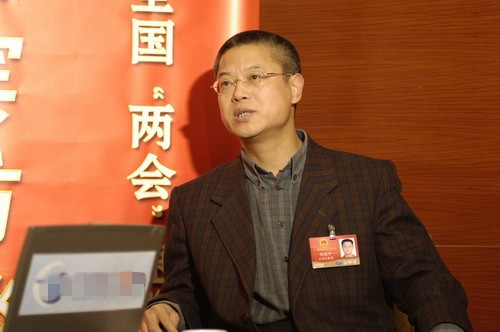Jiangsu deputies propose 'massacre denial' law
- By Lin Liyao
 0 Comment(s)
0 Comment(s) Print
Print E-mail China.org.cn, March 11, 2012
E-mail China.org.cn, March 11, 2012
Thirty-seven deputies from the Jiangsu delegation ask for legislation to criminalize Nanjing Massacre deniers. They are currently attending the annual session of the National People's Congress, China's top legislature, in Beijing.
|
|
|
Zou Jianping is?a professor at Nanjing University of the Arts.?(file photo) |
Zou Jianping, a professor at Nanjing University of the Arts, proposed that China should introduce a law to criminalize the act of denying the occurrence of the Nanjing Massacre. His comments came in the wake of such denials, especially from some right-wing Japanese political groups, and received the immediate backing of 36 deputies of the Jiangsu delegation.
Commenting on the need, and precedence, for such a law, Zou said: "Some people try to deny their crimes, especially if they happened a long time ago. Thus, some European countries have made laws to avoid this kind of historical retrogress."
He continued: "Nagoya Mayor Takashi Kawamura and some right-wing Japanese nationalists always attempt to deny the Nanjing Massacre and Japanese crimes when invading China. Therefore, if we have relevant legislation, such people can be restricted, and even punished, even though they are Japanese. "
Wu Xu, visiting professor at City University of Hong Kong, also voiced his agreement for Zou's proposal. He commented that "those guilty of denying the massacre" should be denounced and punished. He reiterated the fact that in Germany, Austria and 13 other European countries, those who deny Nazi war crimes committed during the World War II face severe legal punishment. He added that China should learn from Europe's example.
On February 20, Nagoya Mayor Takashi Kawamura remarked that "the Nanjing Massacre never took place" during a meeting with a visiting Nanjing delegation.
In less than 24 hours, the Nanjing local government made a formal protest via its official microblog site, stating that Nanjing held to its firm and consistent stance on the historical issue and that it had decided to suspend all official communications with Nagoya.
On February 22, Chinese Foreign Ministry's spokesperson Hong Lei commented that the Chinese government had issued a strong protest to the Japanese side, and voiced his hope that in future Japan could contribute to the healthy development of Sino-Japanese ties.






